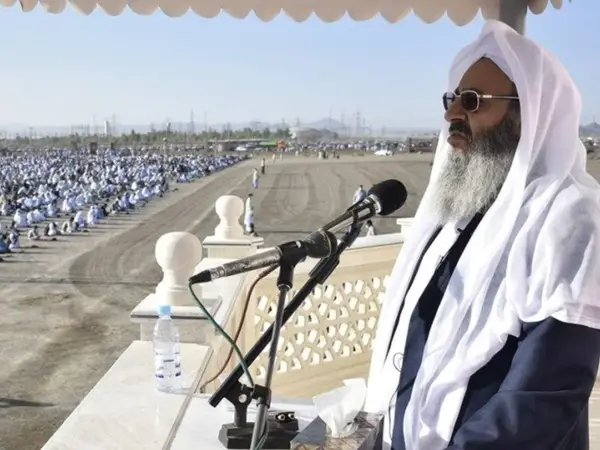The outspoken leader of Iran's Sunnis, Mowlavi Abdolhamid, has criticized Iranian authorities for not punishing the culprits behind Zahedan’s "Bloody Friday" bloodbath.
Nearly 100 civilians, including women and children, were killed in the Sunni city of Zahedan, the capital of Sistan-Baluchistan province, during the Bloody Friday tragedy on September 30, 2022, when they came out for peaceful anti-government protests.
On the eve of Mowlavi Abdolhamid's weekly Friday sermon, security and law enforcement forces were deployed in some crossings of Sistan-Baluchistan province, human rights sources reported.
Baluch Activists Campaign group published videos of "armored bulletproof military vehicles” on the streets of Zahedan and reported snipers were stationed on a mountain near the city’s main Makki Mosque since Friday morning.
Besides Zahedan, Khash city was also experiencing a strong security and military presence, with armored vehicles deployed in the city to deal with any potential gatherings of citizens.
While there has not been a trial for the perpetrators of the killings of protesters, several Baloch protesters accused of attacking security forces and law enforcement have been executed.
“There are reports that some [government agents] go to the families of victims of Bloody Friday and urge them to accept ‘blood money’. The country's customs and current law prohibit this,” said Iran’s top Sunni cleric Mowlavi Abdolhamid.
As per Iran's Islamic Penal Code, a person who has committed murder can avoid the death penalty if the victim's family forgives him. In that case, they may be sentenced to prison and be required to pay "blood money" to the next of kin.
The southeastern province of Sistan-Baluchistan is among the most economically deprived parts of Iran. The province has a large Baluch population, mostly Sunnis. They have historically been among Iran's most persecuted minorities, with the highest execution rate.
“It is surprising that despite the leader's order to punish the perpetrators and leaders of this crime, it has not been followed. Our belief until now was that the leader's orders are valid, and at least those who eat the bread of sovereignty and government will follow it,” Abdolhamid said during his Friday sermon.
“It gives comfort to the families of the martyrs to know that those who committed this crime will be punished,” he continued.
The Bloody Friday protests began with worshippers gathering after a police commander sexually assaulted a young Baluch girl. The uprising became one of the bloodiest days of the uprising following Mahsa Amini's death in morality police custody.
A week-round protest has been taking place in this Sunni-majority city since then, following sermons delivered by the city's Friday prayer leader Mowlavi Abdolhamid.
In his speech on Friday, Mowlavi Abdolhamid once again asked the Islamic Republic to end discrimination and consider "national interests".
